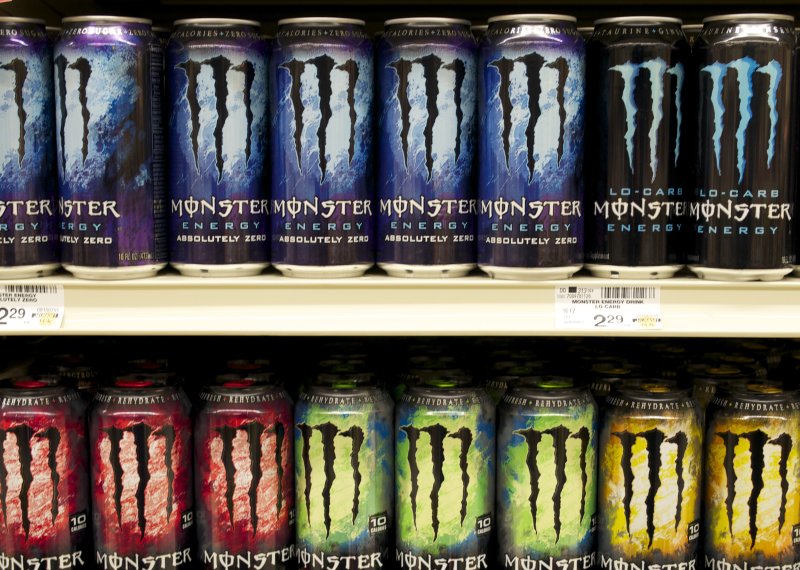Drinking 32 ounces or more of an energy in too short a time was shown in a small study to potentially cause heart malfunction and increases to blood pressure. Photo by Austin Kirk/Flickr
May 29 (UPI) -- Taking in energy drinks too quickly may disturb electrical activity in the body, potentially bringing on irregular heart rhythms and high blood pressure, a new study says.
Consuming a 32-ounce energy drink can create heart abnormalities and raise blood pressure compared to drinking a non-energy beverage, according to a small study published in the June edition of the Journal of the American Heart Association.
"We found an association between consuming energy drinks and changes in QT intervals and blood pressure that cannot be attributed to caffeine," Sachin A. Shah, professor of pharmacy practice at University of the Pacific and study lead author, said in a news release. "We urgently need to investigate the particular ingredient or combination of ingredients in different types of energy drinks that might explain the findings seen in our clinical trial."
The QT interval measures the time the heart's ventricle to get ready to generate another beat. Intervals that are too long or too short can cause an abnormal heartbeat, which can lead to life-threatening arrhythmia.
The study included 34 healthy volunteers from ages of 18 and 40 years who randomly consumed either 32 ounces of one of two caffeinated energy drinks or a placebo drink on three separate days. The drinks were consumed within a 60-minute period, but no faster than one 16-ounce bottle in 30 minutes.
Each energy drink consisted of 304 to 320 milligrams of caffeine per 32 fluid ounces. Any caffeine amount under 400 milligrams isn't expected to cause electrocardiographic changes.
The placebo drink contained only carbonated water, cherry flavoring and lime juice.
The researchers used an electrocardiogram to measure electrical activity of the participants' hearts and took their blood pressure in 30-minute intervals for up to four hours after the participants finished their drinks.
The results showed the participants had QT intervals either 6 milliseconds or 7.7 milliseconds higher versus placebo drinkers. They also had an increase of 4 to 5 points in their systolic blood pressure.
"Energy drinks are readily accessible and commonly consumed by a large number of teens and young adults, including college students," said Kate O'Dell, a researcher at the University of Pacific and study co-author. "Understanding how these drinks affect the heart is extremely important."
Between 2007 and 2011, emergency department visits linked to energy drinks doubled, according to the Centers for Disease Control and Prevention. About 1 in 10 of those visits turned into hospitalizations.
Another study reported that just one energy drink can harm a person's blood vessels.
"The public should be aware of the impact of energy drinks on their body especially if they have other underlying health conditions," Shah said. "Healthcare professionals should advise certain patient populations, for example, people with underlying congenital or acquired long QT syndrome or high blood pressure, to limit or monitor their consumption."















